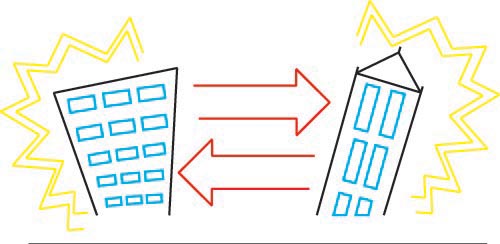
(Graphic Design by Helena Bologna)
SMU and the Dallas County Community College District (DCCCD) renewed their partnership to improve community education.
SMU President R. Gerald Turner and DCCCD Chancellor Wright Lassiter signed an articulation agreement and added a reverse-transfer agreement on Monday, Aug. 16 at SMU’s Prothro Great Hall in the Perkins School of Theology, according to an SMU press release. The two agreements serve as a continued commitment to improve college graduation and transfer rates within the communities by providing guidelines for transferring credits between the two institutions.
DCCCD is SMU’s largest feeder district for transfer students, according to Nancy Skochdopole, director of transfer and transition services at SMU. From fall 2000 through spring 2010, SMU saw 1,372 students matriculate from DCCCD schools; and within the past five years 604 DCCCD students successfully transferred to SMU.
“The articulation agreement between SMU and DCCCD that we renewed last week lists the guidelines we look for in a successful transfer applicant from DCCCD to SMU,” Skochdopole said in an e-mail interview. “By communicating these guidelines, our goal is to make the transfer process clearer to DCCCD students, which, in turn, we hope will further increase our transfer numbers of DCCCD students.”
One criterion for measuring the success of Texas community colleges is the two-year graduation rate, not the number of students who successfully transfer to a four-year university. The new reverse-transfer agreement allows DCCCD students who have transferred to SMU to use SMU credits to complete the hours needed for an associate’s degree within the community college district, according to Skochdopole.
“The first DCCCD group to be offered the reverse-transfer of credit program is those who are entering SMU right now [fall 2010]. Once they have completed 15 hours at SMU, we will notify them of this agreement and offer them the chance to transfer SMU credit back to DCCCD in order to complete their associate’s degree,” Skochdopole said. “We are happy to facilitate other DCCCD transfer students who came to SMU prior to this fall reverse transfer their credits for an associate’s degree from DCCCD.”
Minh Tran, SMU junior accounting major and Richland College transfer student, said the agreement will save students a lot of time in terms of picking out courses that will transfer to SMU and apply toward an associate’s degree.
“I prefer to have my associate’s before [going] to SMU,” Tran said.
“Since SMU has higher tuition, I prefer[ed] to take everything I could before I transfer[ed].”
DCCCD Chancellor Wright Lassiter said in an e-mail interview that the partnership with SMU supports efforts to improve transfer requirements for superior student successes and outcomes.
“Students benefit from the partnership in that they receive full credit for their associate degree work and are eligible for significant scholarship opportunities,” Lassiter said. “The partnership enhances the status of the DCCCD in producing high-achieving graduates.”
Skochdopole said because transfer students are actively involved in and out of the classroom and come from different walks of life, they are valuable members of the SMU community, “offering diverse backgrounds and experiences that enhance the campus and learning environment.”
“The reverse rransfer agreement provides a way for DCCCD to award more degrees and DCCCD transfers to earn their associate’s degrees,” Skochdopole said.








